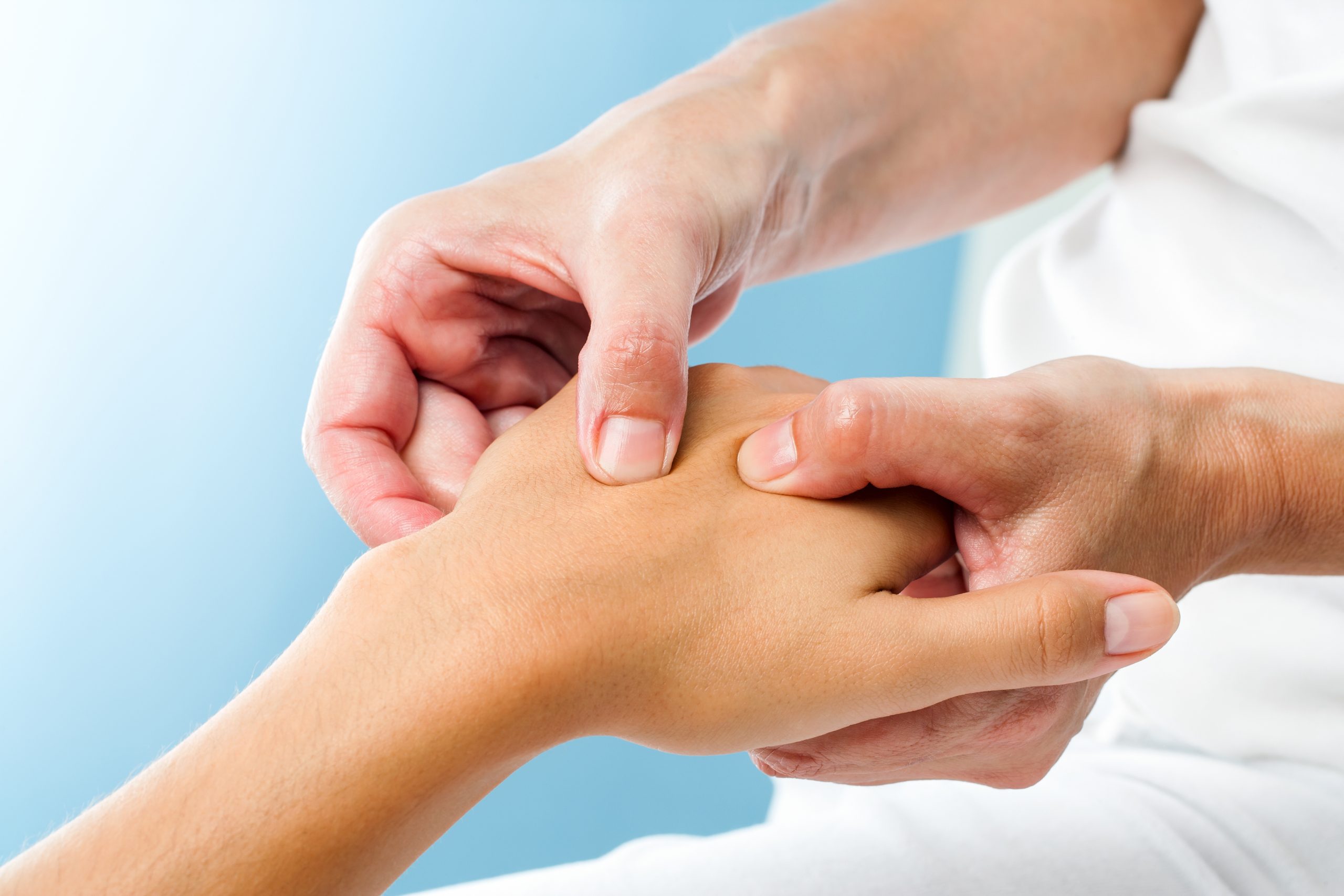Home | Specialties | Occupational Therapy | Hand Therapy
What is Hand Therapy?
Hand therapy is a specialized area of rehabilitation that focuses on treating conditions and injuries affecting the hand, wrist, and arm. Hand therapy involves a range of interventions and techniques, including therapeutic exercises, manual therapy, splinting, wound care, sensory re-education, and desensitization therapy.

Common Conditions Treated with Hand Therapy
Through hand therapy, individuals can regain optimal hand and upper limb function, improve independence in daily activities, and enhance their overall quality of life. Hand therapists work closely with individuals, providing comprehensive care, support, and guidance throughout the rehabilitation process.
distal radius fracture
wrist tendonitis
tennis elbow
golfers elbow
Carpal tunnel syndrome
cubital tunnel syndrome
radial tunnel syndrome
thumb arthritis
swan neck deformity
boutonniere deformity
flexor and extensor tendon injuries
mallet finger
hand & wrist arthritis
hand and wrist trauma
humerus fracture
distal biceps repair
Hand Therapy Treatment Methods
Depending on your condition, symptoms, and functional goals, your occupational therapist will work with you to determine a hand rehabilitation treatment plan tailored to your unique needs. Here are some of the most common methods used in hand therapy:
Exercises
Hand therapists prescribe specific exercises to improve strength, dexterity, range of motion, and function. Common exercises focus on stretching, coordination, gripping, pinching, and resistive exercises using putty or weights.
Modalities
Heat, cold, ultrasound, electrical stimulation, lasers, etc., are used to reduce pain and swelling, improve blood flow, and facilitate healing.
Splinting
Custom splints can mobilize, immobilize, support, or position the hand and wrist to allow healing, provide stability, reduce pain, or improve function. They are commonly used after injuries, surgeries, or for conditions like arthritis.
Soft Tissue Mobilization
Techniques like massage and myofascial release loosen muscles, tendons, and scar tissue to reduce tension, adhesion, pain, and facilitate movement.
Desensitization Techniques
Methods like graded exposure to textures, temperatures, and touch help regain sensation and retrain the hand after nerve injuries.
Neuromuscular Re-Education
Exercises focused on sensory input and motor output help regain control and fine motor skills after neurological hand injuries.
Functional Training
Patients relearn everyday hand tasks and skills through specialized training, adaptive equipment, and assistive devices.
What To Expect
Symptoms/Conditions Develop
The patient experiences an injury, trauma, or develops a hand-related condition, such as carpal tunnel syndrome, fractures, tendonitis, or arthritis. They may also undergo hand surgery for various reasons.
Medical Evaluation
The patient seeks medical evaluation and treatment from a physician, orthopedic surgeon, or other healthcare provider. Based on the evaluation, the patient may be referred to an occupational therapist (OT).
Initial OT Evaluation
The OT conducts an initial evaluation to assess the patient’s hand condition, functional limitations, goals, and medical history.
Developing A Treatment Plan
Based on the evaluation, the OT collaborates with the patient to establish treatment goals and develop a personalized treatment plan. The plan may include short-term and long-term goals for improving hand function, reducing pain, and enhancing daily activities.
Assess Functionality
The OT conducts a comprehensive assessment of the patient’s hand condition, including evaluating range of motion, strength, sensation, functional limitations, and any specific treatment needs.
Therapeutic Intervention
The patient starts attending hand therapy sessions where they receive various therapeutic interventions, such as therapeutic exercises, manual therapy, splinting, wound care, nerve gliding exercises, and modalities.
Functional Training
The patient engages in functional training exercises that replicate real-life activities and tasks relevant to their personal and professional life. This training can include tasks like dressing, grooming, cooking, writing, and using utensils.
Adaptive Strategies
The OT teaches the patient adaptive techniques and strategies to modify the way they perform tasks to accommodate their hand condition and prevent further strain.
Progress Monitoring
The OT monitors the patient’s progress regularly, adjusting the treatment plan as needed based on improvements and challenges.
Home Exercise Plan
The patient receives a customized home exercise program to continue progress outside of therapy sessions and maintain gains.
